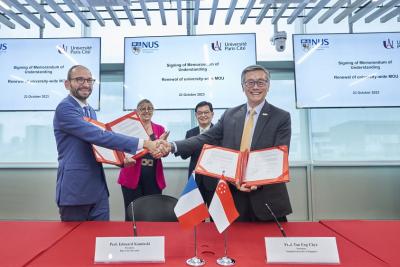Nghiên cứu dẫn đầu bởi NUS cho thấy khả năng tự chủ thấp và nhận thức kém có thể khiến nợ nầng chồng chất

The NUS-led study used a combination of a self-reporting questionnaire and behavioural measures to compare the profiles of extreme debtors with control groups.
A first-of-its-kind study led by Associate Professor Jia Lile from the Department of Psychology at the National University of Singapore (NUS) Faculty of Arts and Social Sciences found that extreme debtors have a low capacity to regulate their behaviour but hold an illusory perception of high capacity, which may expose them to further debt accumulation.
The study, conducted in collaboration with the Singapore University of Social Sciences (SUSS) and with the support of Credit Counselling Singapore (CCS), used a combination of a self-reporting questionnaire and behavioural measures to compare the profiles of extreme debtors (defined as those who owed credit card debts that amounted to 12 times or more of their monthly income) with two control groups.
Assoc Prof Jia said: “There is an urgency to identify and measure risk factors behind the global debt crisis which has been exacerbated by the COVID-19 pandemic. Past studies have focused on variations in debt among the general population, but there has been little research into how those who suffer from extreme and prolonged debt view their own self-control ability and how this affects their behaviour until now. The use of behavioural measures in our study also allowed us to identify potential distortion in responses from self-reporting questionnaires as a result of the respondents’ mental construal which creates a biasness in how they respond.”




















